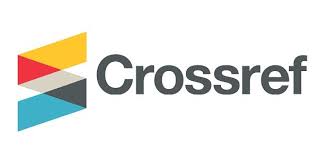Social Control Movement as a Corruption Eradication Instrument in Indonesia
DOI:
https://doi.org/10.33061/wh.v26i1.3548Keywords:
Social-Control Movement, Law Enforcement, Anti-CorruptionAbstract
Corruption in Indonesia is an endemic problem. It has been hampering the development, disconnecting hopes of fulfilling the fundamental constitutional rights of citizens, creating a repressive government, and harming the country's finances and economy. This research tries to find the right movement pattern of social control, such as whether in efforts to prevent and eradicate corruption in Indonesia. The conclusion from this legal research is that the movement of social control as an instrument to eradicate corruption in Indonesia has been described both in the aspect of Judicial review, Class Action and Citizen Law Suit (CLS), Court Monitoring, and the Whistleblower System (WbS), as well as non-legal movements (public hearing & advocacy, mass actions) that are not facultative, meaning that all efforts can be undertaken by civil society by being bridged by NGOs and the campus in the corruption eradication agenda in Indonesia Going forward, the challenge of eradicating corruption in Indonesia is increasingly tricky and steep, it requires commitment from all parties to strengthen commitments to eradicate corruption, create integrity zones, and more importantly enhance the KPK as an independent anti-corruption institution, as mandated by UNCAC to maintain the independence of anti-corruption in Indonesia.
Keywords:Social-Control Movement, Law Enforcement, Anti-Corruption
Â
References
Indah Putri Rahmawati, “Kontruksi Pajak Lingkungan di Indonesiaâ€, Jurnal Wacana Hukum, Volume 25, Nomor 2 (2019)
Jaelani A.K, Basuki U, “Problematika Pelaksanaan Putusan Mahkamah Konstitusi Nomor 100/PUU-XI/2013 dalam Mendudukkan Pancasila Sebagai Dasar Negaraâ€, Jurnal Wacana Hukum, Volume 24, Nomor 2 Tahun 2018.
Bambang Ali dan Abdul Kadir Jaelani, “Menggagas Constitutional Complaint dalam Konstitusi Indonesia dan Politik Hukum Islamâ€, Jurnal Wacana Hukum, Volume 24, Nomor 1 Tahun 2018.
Arifin Ma’ruf, “Kedudukan Asas Kebebasan Berkontrak dalam Kebijakan Kemitraan Kehutananâ€, Jurnal Wacana Hukum, Volume 25, Nomor 1 Tahun 2019.
ACLC. (2018). Statistik Tindak Pidana Korupsi di Indonesia. Jakarta: KPK-RI.KPK-RI.
Agusman, D. D. (2014). Hukum Perjanjian Internasional: Kajian Teori dan Praktik Indonesia (Cet. Ke-2). Bandung: Refika Aditama.
Andik Saputra. (2019, October 10). Peneliti MK: Indonesia Negara Demokrasi Terbesar di Indonesia. Retrieved from detiknews.com: https://news.detik.com/berita/d-4741034/peneliti-mk-indonesia-negara-demokrasi-terbesar-di-dunia
Antlo¨v, H., Brinkerhoff, D. W., & Rapp, E. (2010). Civil Society Capacity Building for Democratic Reform: Experience and Lessons from Indonesia. Voluntas, 21, 417–439.
Basu, K., & Cordella, T. (2018). Institution Governance and The Control of Corruption. New York: Palgrave MacMillan.
Black, H. C. (1999). Black's Law Dictionary . St. Paul: West Group.
Butt, S., & Schütte, S. A. (2014). Assessing judicial performance in Indonesia: the court Corruption Crimes. Crime Law Soc Change, 62, 603–619.
Ellias, S., & Levinkind, S. (2004). Legal Research: How to Find & Understand the Law (12th edition). Berkeley: NOLO.
Juwono, V. (2018). Melawan Korupsi: Sejarah Pemberantasan Korupsi di Indonesia 1945-2014. Jakarta: Kepustakaan Populer Gramedia.
Kadir, Y. (2018). Efektifitas Pemantauan Persidangan Tindak Pidana Korupsi Oleh Court Monitoring Team Universitas Gorontalo Bekerjasama Dengan Komisi Pemberantasan Korupsi. Law Review, 243-261.
Klitgaard, R. (1988). Controlling Corruption. California: University California Press. Retrieved from www.jstor.org/stable/10.1525/j.ctt1pnj3b
Marcia, G. (2013). The contingencies of societal accountability: Examining the link between civil society and good government. Studies in Comparative International Development, 48((4)), 380-402. doi:10.1007/s12116-012-9126-3
Marzuki, P. M. (2005). Penelitian Hukum. Jakarta: Kencana Prenada Group.
Merkrle, O. (2018). Indonesia Overview of Corruption and Anti-Corruption. Berlin: Transparency International.
Moch.Iqbal. (2012, Maret ). Aspek Hukum Class Action dan Citizen Law Suit Serta Perkembangannya di Indonesia. Jurnal Hukum dan Peradilan, 1(1), 89-112.
Moene, K., & Søreide, T. (2016). Corruption Control. Crime Law Soc Change , 66, 147–163. doi:10.1007/s10611-016-9618-6
Mungiu-Pippidi, A., & Dadašov, R. (2016). Measuring Control of Corruption by a New Index of Public Integrity. European Journal of Criminal Policy Research, 22, 415–438.
Prakasa, S. U. (2019). Anti-Corruption Survivor, Academic Freedom, and the Challenges. PETITA: Jurnal Kajian Ilmu Hukum dan Syariah, 4 (2).
______, S. U. (2019, Agustus 25). Merdeka dari Asap. Retrieved from Harian Bhirawa: https://www.harianbhirawa.co.id/merdeka-dari-asap/
Richard, H., & Mathisen, H. (2012). Understanding success and failure of anti-corruption initiatives. Crime, Law and Social Change, 58(5), 533-549. doi:10.1007/s10611-011-9361-y
Robertson-Snape, F. (1999). Corruption, Collusion, and Nepotism in Indonesia. Third World Quality, 589-602.
Robinson, R., & R.Hadiz, V. (2004). Reorganising Power in Indonesia: The politics of oligarchy. London: Routledge Curzon.
Transparency International. (2019). Corruption Perseption Index 2019. Berlin: Transparency International.
Verdenicci, S., & Hough, D. (2015). People power and anti-corruption; demystifying Citizen-Centred Approaches. Crime Law Soc Change, 64, 23–35. doi:10.1007/s10611-015-9585-3
Wibowo, R. A. (2018, November 4). When Anti-Corruption Norms Lead to Undesirable Results: Learning From the Indonesian Experience. Crime Law Social Change, 70, 383-396. doi:10.1007/s10611-017-9737-8
Zulaiha, A. R., & Anggraeni, S. (2016, Agustus). Menerapkan Biaya Sosial Korupsi Sebagai Hukuman Finansial dalam Kasus Korupsi Kehutanan. Jurnal Integritas , 2(1).
Downloads
Published
How to Cite
Issue
Section
License
Authors who publish with this journal agree to the following terms:
- Copyright on any article is retained by the author(s).
- The author grants the journal, the right of first publication with the work simultaneously licensed under a Creative Commons Attribution License that allows others to share the work with an acknowledgment of the work’s authorship and initial publication in this journal.
- Authors are able to enter into separate, additional contractual arrangements for the non-exclusive distribution of the journal’s published version of the work (e.g., post it to an institutional repository or publish it in a book), with an acknowledgment of its initial publication in this journal.
- Authors are permitted and encouraged to post their work online (e.g., in institutional repositories or on their website) prior to and during the submission process, as it can lead to productive exchanges, as well as earlier and greater citation of published work.
- The article and any associated published material is distributed under the Creative Commons Attribution-ShareAlike 4.0 International License
















.png)


